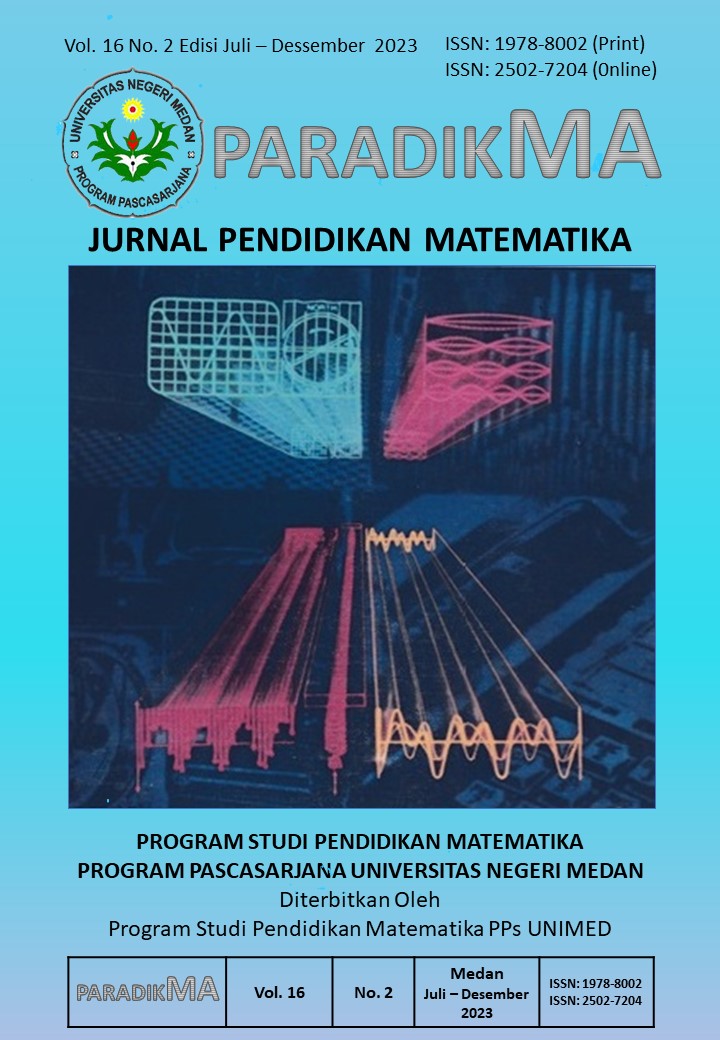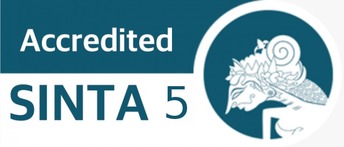The Effect of Problem Based Learning Models on the Mathematical Dispositions of Class VIII Students of SMP Negeri 5 Stabat
DOI:
https://doi.org/10.24114/paradikma.v16i2.48044Abstract
The purpose of this research is to investigate: (1) how students' mathematical dispositions differ depending on whether they were taught using a Problem-Based Learning model or an Ordinary Learning model; (2) how the mathematical dispositions of students are affected by the relationship between the learning style and Previous Students' Ability. This study is a quantitative investigation employing procedures that are semi experimental. The instruments of this research are problem solving ability tests and student disposition questionnaires. The participants in this research project are all 222 students enrolled in class VIII at SMP Negeri 5 Stabat during the academic year 2022/2023. There are a total of 222 individuals. The method of sampling utilized for this investigation was a straightforward random sampling method, and the total number of students comprising the sample was calculated using the Issac and Michael formula. Essay examinations and questionnaires were the research tools that were utilized in this investigation. A Two Way ANOVA was utilized in the analysis of the results. The findings of the research indicate the following: (1) the mathematical disposition of students in the class that uses problem-based learning is higher than that of students in the class that uses ordinary learning; (2) there is no interaction between the learning model and early mathematical abilities (high, medium, and low) on students' mathematical dispositions.Keywords: Problem Based Learning, Quasi Experiment, Mathematical DispositionsReferences
Agung, R. H., & Masrianingsih. (2019). Creative Problem Solving Learning Model to Support Higher Level Thinking Skills Based on Mathematical Disposition Levels. Journal of Mathematics Education Research. 6(2), 188-199.
Hudojo, H. (2005). Curriculum Development and Mathematics Learning. Poor: UM Press.
Kemendikbud. (2013). Permendikbud Number 65 of 2013 concerning Process Standards.
Mulyatiningsih, E. (2012). Applied Research Methodology. Yogyakarta: Alphabet.
Polking, J. (1998). Response To NCTM™s Round 4 Question.
Ruseffendi, E. T. (2005). Fundamentals of Educational Research & Other Non-Exact Fields. Bandung: Tarsito.
Sermatan, E., Fahinu, F., & Zamsir, Z. (2018). Improving Students' Algebraic Reasoning Ability Through Problem-Based and Conventional Learning in Tsanawiah Madrasah Students. Journal of Mathematics Education. 9(1), 53-62.
Sumantri, S. (2016). Theory and Practice Learning Strategies at the Elementary Level. Jakarta: PT Raja Grafindo.
Sumarmo, U. (2013). Thinking and Mathematical Disposition and Learning. Collection of Papers. FMIPA UPI: Bandung. Published.
Syahputra, E. (2016). Applied Statistics for Quasi and Experiment in Education, Biology, Agriculture, Engineering, etc. Medan: United Press.
Tahir, S. R. (2020). The Effect of Applying the PBL Model on the Mathematical Problem Solving Ability of SMP PGRI (equivalent) Sungguminasa Students. Mandalika Journal of Mathematics and Education. 2(1), 56-66.
Tandiling, E. (2013). Development of School Mathematics Learning with an Ethnomatematics Approach Based on Local Culture as an Effort to Improve the Quality of Mathematics Learning in Schools. Yogyakarta: UNY.
Yuanari, N. (2011) Application of the TTW (Think-Talk-Write) Strategy as an Effort to Improve Problem Solving Ability and Mathematical Disposition of Class VIII Students of SMP N 5 Wates Kulonprogo. Published Thesis. Yogyakarta: Yogyakarta State University.







